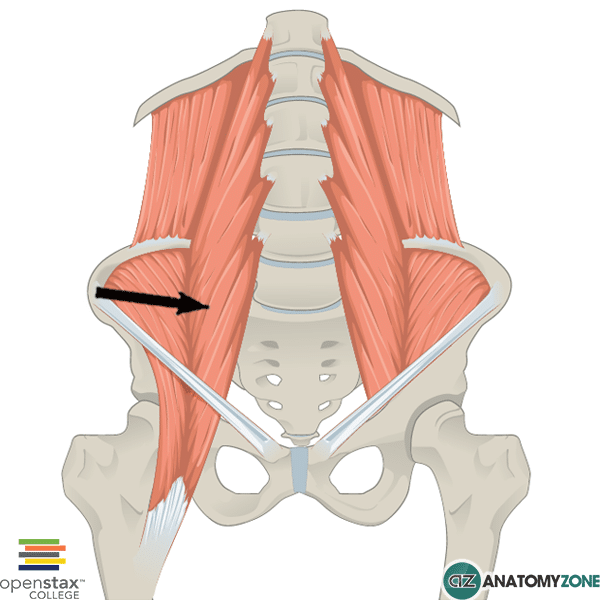Psoas Major
Clik here to view.

The structure indicated is the psoas major muscle
The psoas major muscle is one of the muscles which makes up the posterior abdominal wall.
There are four muscles which contribute to the posterior abdominal wall:
- Psoas major
- Psoas minor
- Quadratus lumborum
- Iliacus
The iliacus muscle combines with the psoas major muscle to enter the anterior compartment of the thigh and insert via a common tendon on the lesser trochanter of the femur. The iliacus and the psoas major muscles are thus collectively referred to as the iliopsoas muscle – they act synergistically to flex the thigh at the hip joint, as well as acting to cause lateral rotation of the thigh. The iliopsoas muscles are the strongest hip flexors.
Origin: Transverse processes of L1-L5, vertebral bodies and discs of T12-L5
Insertion: Lesser trochanter of femur
Action: hip flexion, lateral rotation of thigh
Innervation: fibres of L1-L3 of lumbar plexus
Learn more about the muscles of the posterior abdominal wall in this tutorial.
